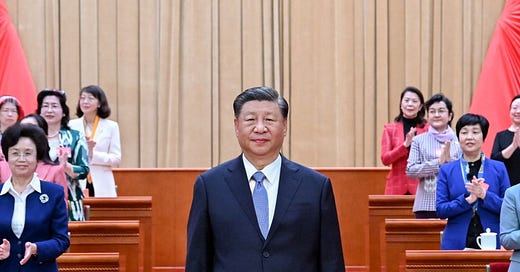Why Do Young Americans Support Hamas? Look at TikTok.

Chinese President Xi Jinping. (Photo by Xie Huanchi/Xinhua via Getty Images)
The app is digital fentanyl made by China. And it is brainwashing our youth against the country and our allies, argues Rep. Mike Gallagher.
212
According to a Harvard/Harris poll, 51 percent of Americans ages 18–24 believe Hamas was justified in its brutal terrorist attacks on innocent Israeli citizens on October 7.
I read that statistic at a time where I thought I’d lost the capacity to be shocked. For weeks, I’ve seen the clips and read the firsthand stories documenting Hamas’s atrocities: bu…
Enjoying the story?
Enter your email to read this article and receive our daily newsletter.
Error
Already have an account?
Sign In














